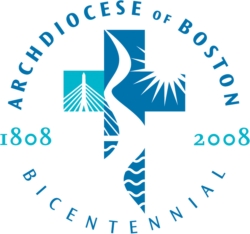Bicentennial memories and moments: The archdiocese and the priests’ senate
The historical event of the Second Vatican Council (1962-65) has been associated with the numerous movements that preceded it and flowed from it. The international liturgical movement can be cited as a primary example of the former. Liturgical renewal helped to form many of the seminarians who later became the bishops and their counselors who were present at the Vatican Council. Movements on behalf of social action, family life and spiritual development are further illustrations of the energy and vision emerging within the Catholic Church prior to the convening of the council by Pope John XXIII.
However, it was only after the conclusion of the council that a movement promoting advisory councils was born. During the later years of the 1960s, the rapid establishment of councils of priests and parish councils throughout the dioceses of the Catholic world legitimized a movement that also played itself out within the confines of the Archdiocese of Boston. Its story is worth the telling.
Ironically, in “Boston Catholics: A History of the Church and its People” (Northeastern, 1998), the distinguished historian Thomas H. O’Connor fails to include any references to the priests’ senate, or its recommendations, which shaped much of the history of the archdiocese during the ensuing decades of the Vatican Council era. In 1967 Cardinal Richard Cushing established the priests’ senate as an advisory body. The constitution and by-laws for the operation of the priests’ senate envisioned a representative body of diocesan and religious order priests and deacons, who were to be nominated and elected by their peers from age groupings and ministries. Officers were to be chosen from among the 54 members of the senate. Meetings were to be held monthly, with “Robert’s Rules” guiding the quorum. Father William Granville, as the council’s first president, provided strong, yet tactful leadership during his tenure. Progressive and conservative views of the Vatican Council’s reforms clashed. However, amity was maintained amid the tensions, as the will of the majority prevailed and the rights of the minority were preserved.
The major focus of the initial agenda items was the assignment policies for pastors and curates, which at that time, was the privileged domain of the archbishop and chancellor. The early years of the priests’ senate were stormy. Advice was given, responses rendered, and concessions made. Younger and older clergy differed in their enthusiasms, or lack of such, for the expanding changes being proposed. Eventually, an Office for Clergy Personnel was instituted, with a full-time priest-director and assistants.
The tenure of Cardinal Humberto Medeiros (1970-83) coincided with the greater portion of the senate’s history. During this period, with the presidential leadership of Fathers Edmund Sviokla, Francis McGann, and Daniel Hart, later an auxiliary bishop of Boston and ordinary of the Diocese of Norwich, the senate recommended further refinements to the clergy personnel policies. Local parish councils were endorsed. Chancery financial practices were put forth for discussion.
Empowerment of the laity and women religious became reference points during the presidencies of Fathers Leonard McGrath, John O’Donnell, (the author of this piece), Paul Garrity, and John Dooher, currently auxiliary bishop for the southern region of the archdiocese. Offices for social justice and peace, urban ministry, family life, spiritual life, and pastoral planning for evangelization became expressions of the broadening vision espoused in the senate’s recommendations to Cardinal Medeiros.
With the death of a local ordinary, the priests’ council is canonically dissolved until the new bishop chooses to reconvene this advisory body. Such had been the situation with the passing of Cardinal Cushing in 1970 and the arrival of Archbishop Medeiros. Fourteen years later, with the arrival of the eighth Archbishop of Boston, Bernard Law, the priests’ senate was replaced by a presbyteral council in accord with the new norms of the revised Code of Canon Law. The local diocesan bishop now convened and presided over the new advisory structure. He also had greater control of the agenda and discussion.
As envisioned by the ancient philosophers, the role of a senate body was to bind the leader with the people. The priests’ senate, while never a perfect experiment, was a learning experience for those people willing to discover ways of being a diocese together. The history of the Boston Priests’ Senate is a story worth telling and remembering.
Father John O’Donnell served as president of the priests’ council from 1977-79. He is currently a parochial vicar at St. Gregory the Great Parish in the Lower Mills section of Dorchester.



















